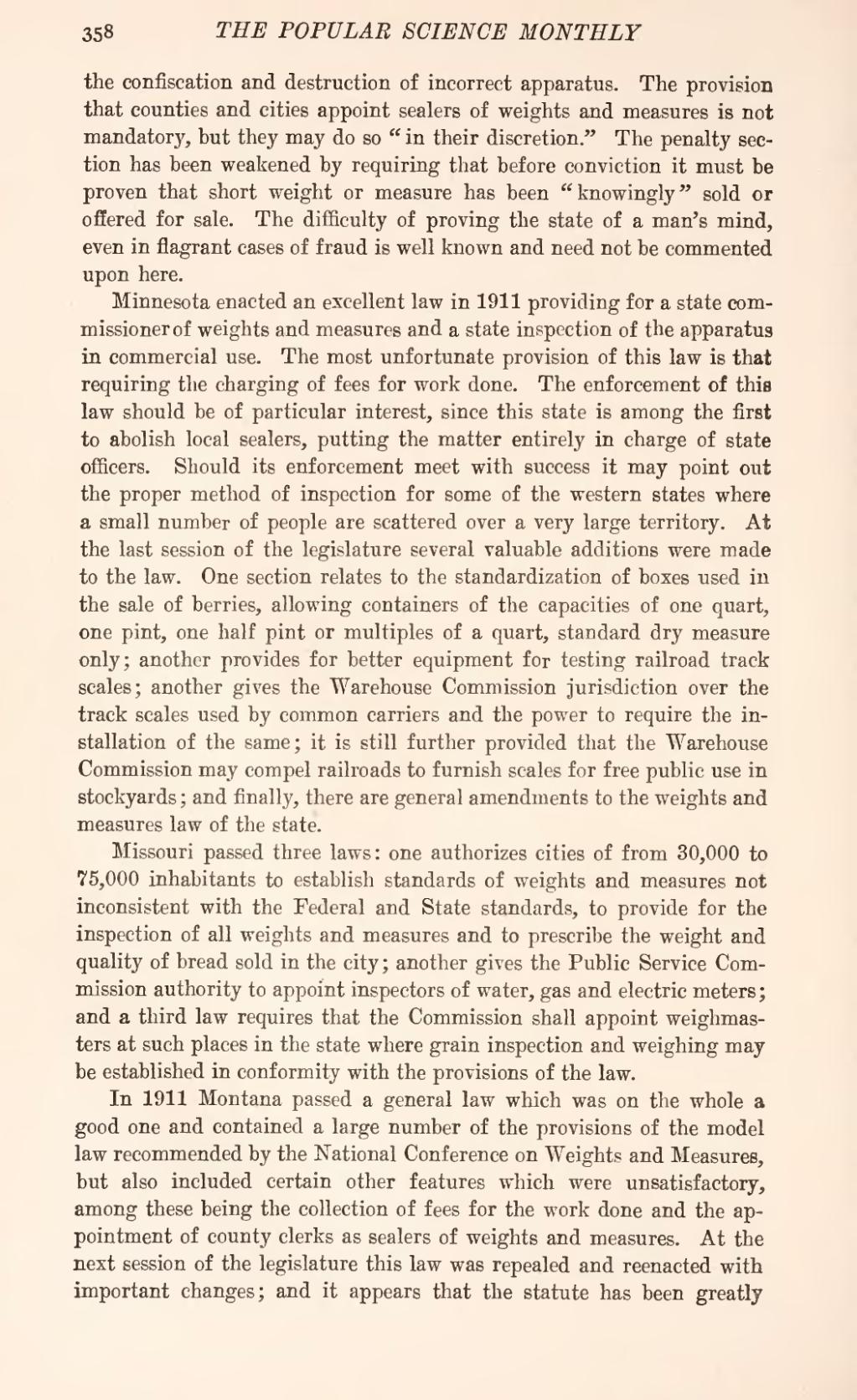the confiscation and destruction of incorrect apparatus. The provision that counties and cities appoint sealers of weights and measures is not mandatory, but they may do so "in their discretion." The penalty section has been weakened by requiring that before conviction it must be proven that short weight or measure has been "knowingly" sold or offered for sale. The difficulty of proving the state of a man's mind, even in flagrant cases of fraud is well known and need not be commented upon here.
Minnesota enacted an excellent law in 1911 providing for a state commissioner of weights and measures and a state inspection of the apparatus in commercial use. The most unfortunate provision of this law is that requiring the charging of fees for work done. The enforcement of this law should be of particular interest, since this state is among the first to abolish local sealers, putting the matter entirely in charge of state officers. Should its enforcement meet with success it may point out the proper method of inspection for some of the western states where a small number of people are scattered over a very large territory. At the last session of the legislature several valuable additions were made to the law. One section relates to the standardization of boxes used in the sale of berries, allowing containers of the capacities of one quart, one pint, one half pint or multiples of a quart, standard dry measure only; another provides for better equipment for testing railroad track scales; another gives the Warehouse Commission jurisdiction over the track scales used by common carriers and the power to require the installation of the same; it is still further provided that the Warehouse Commission may compel railroads to furnish scales for free public use in stockyards; and finally, there are general amendments to the weights and measures law of the state.
Missouri passed three laws: one authorizes cities of from 30,000 to 75,000 inhabitants to establish standards of weights and measures not inconsistent with the Federal and State standards, to provide for the inspection of all weights and measures and to prescribe the weight and quality of bread sold in the city; another gives the Public Service Commission authority to appoint inspectors of water, gas and electric meters; and a third law requires that the Commission shall appoint weighmasters at such places in the state where grain inspection and weighing may be established in conformity with the provisions of the law.
In 1911 Montana passed a general law which was on the whole a good one and contained a large number of the provisions of the model law recommended by the National Conference on Weights and Measures, but also included certain other features which were unsatisfactory, among these being the collection of fees for the work done and the appointment of county clerks as sealers of weights and measures. At the next session of the legislature this law was repealed and reenacted with important changes; and it appears that the statute has been greatly
